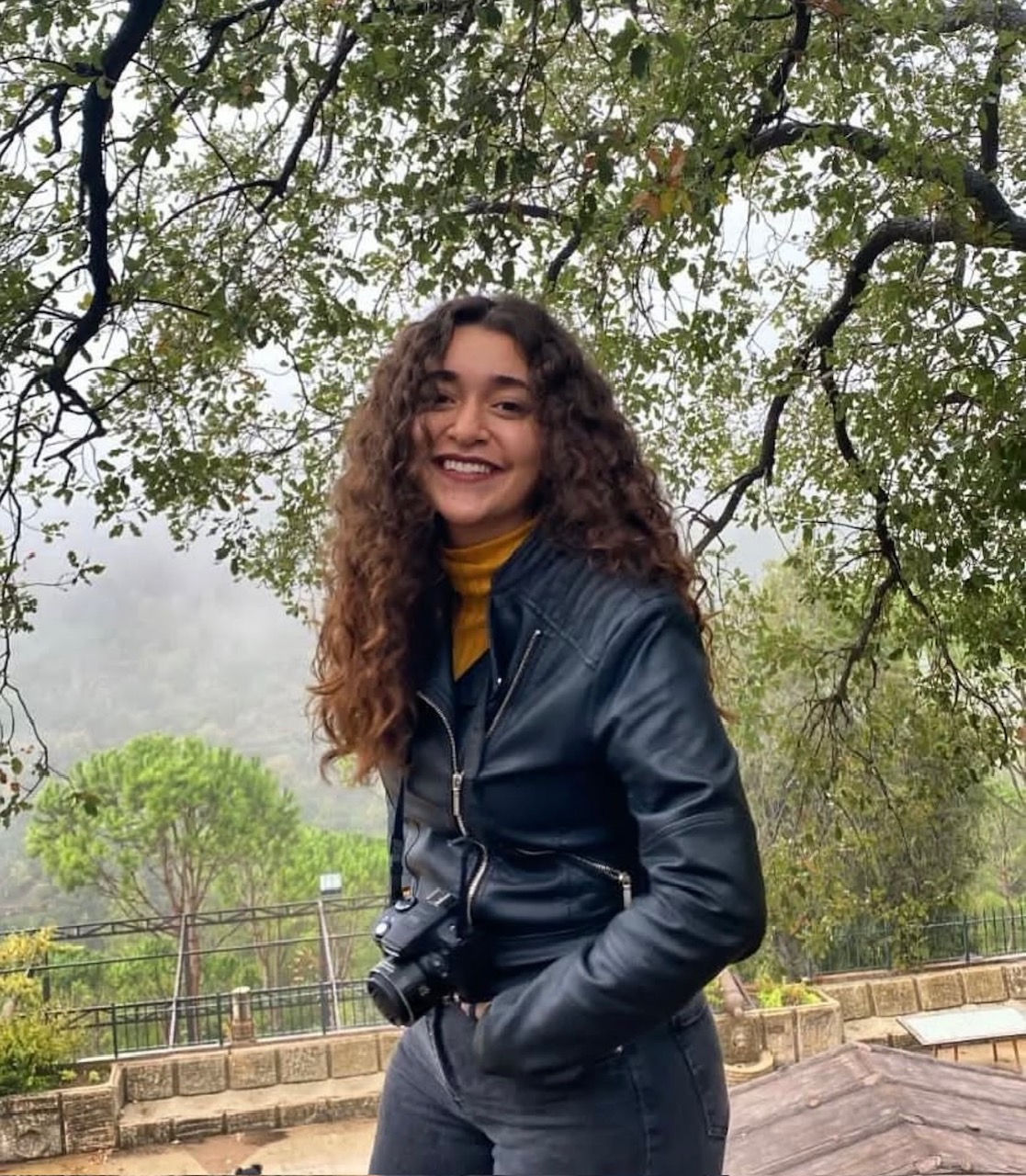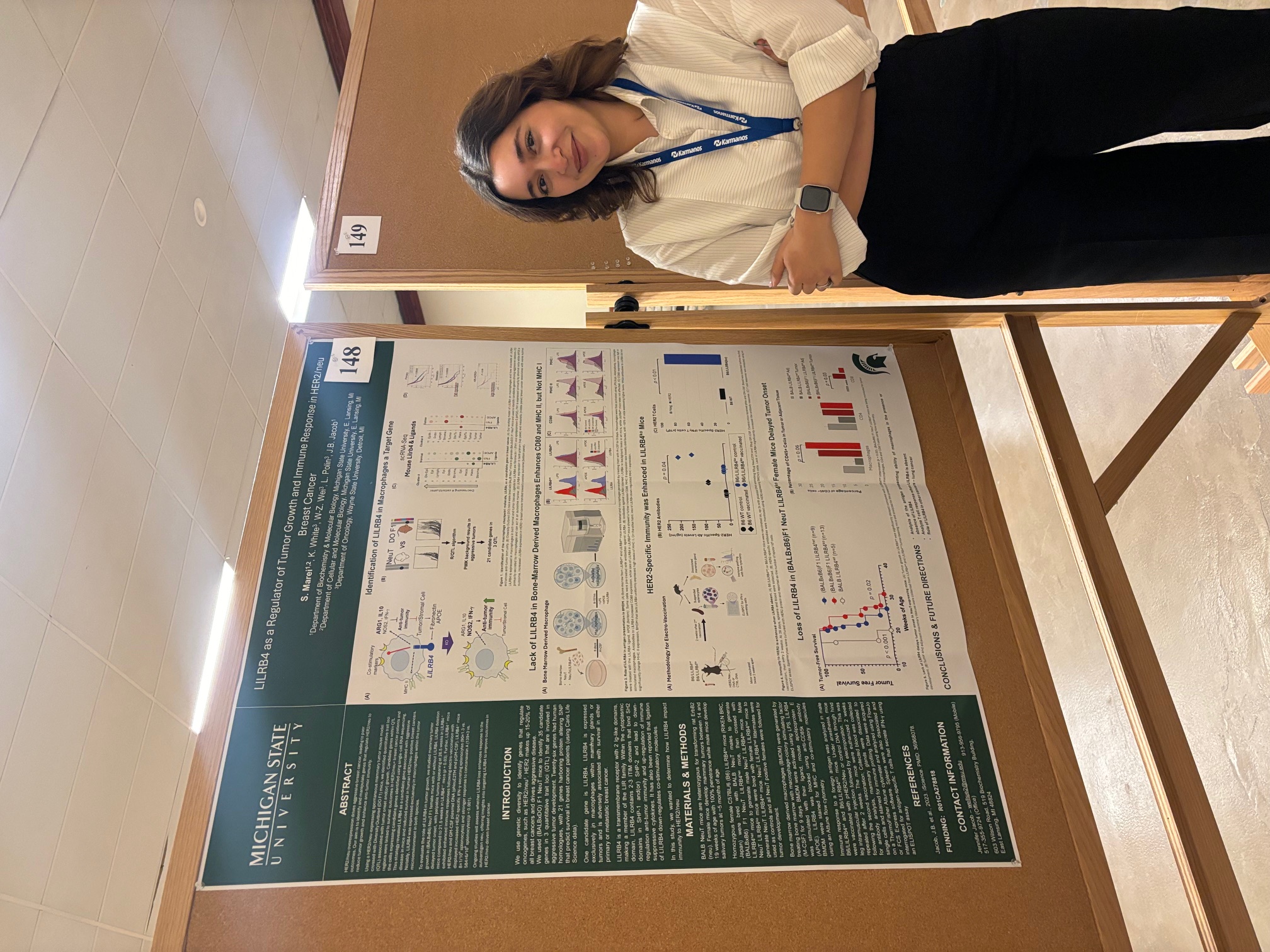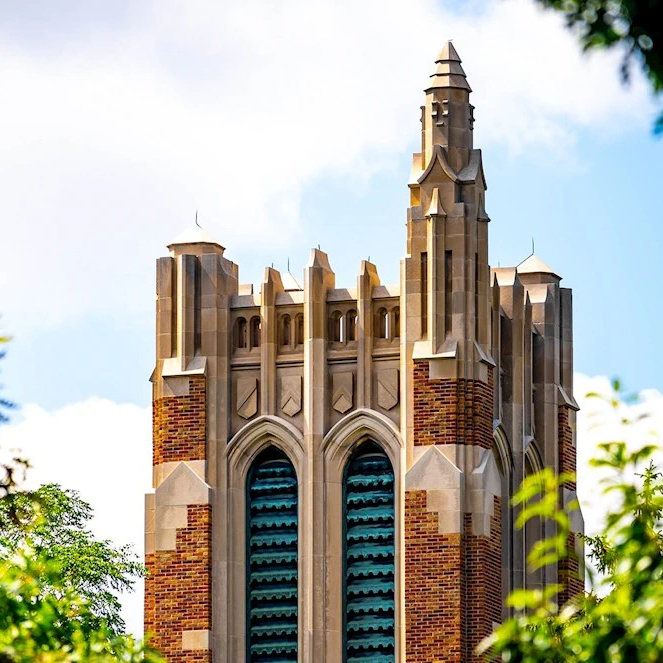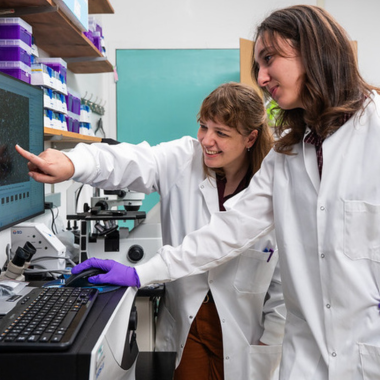Student Spotlight: Sarah Marei

Sarah Marei is a first year PhD student in MSU's Cell and Molecular Biology program where she conducts research in the Andrechek Lab, studying lymph node metastasis of breast cancer. Before joining MSU, Marei completed her bachelor's and master's degrees at the American University of Beirut in Lebanon, which is where she spent the majority of her life. An advocate for open science and research communication, she's been a part of the Early Career Advisory Group for eLife journal. Outside of research, she enjoys reading, watching TV shows, hiking or anything in a sunny weather.
Could you speak a bit about the research you pursue at MSU?
During my first year as a BMS student, I rotated through three labs focused on aggressive
forms of breast cancer, exploring areas ranging from prevention strategies to metastasis
and immune response. These studies utilize mouse models and bioinformatics approaches
to better understand tumor progression. The Jacob Lab in BMB specifically models breast cancer heterogeneity using diverse mouse strains that
spontaneously develop HER2-amplified tumors. By performing single-cell RNA sequencing
on these models, the lab has identified candidate genes associated with tumor formation
and immune response. Ongoing research aims to mechanistically investigate these targets,
with the goal of uncovering actionable therapeutic strategies.
What originally drew you to this area of research?
I've always been interested in women health research and cell biology. During my master's
degree, I studied circRNA-miRNA interactions in breast cancer to establish early detection
non-invasive method. This experience in the Talhouk Lab sparked a bigger interest
in studying the complex biological mechanisms that drive its progression. I became
particularly intrigued by how tumors evolve, adapt to their environment and evade
immune detection, and ultimately, how we can stop it.

You recently presented at the annual meeting of the Translational Research Cancer Centers Consortium. Could you touch on what you discussed during your presentation?
At TRCCC, I presented the research I was part of in the Jacob Lab on the role of LILRB4,
a myeloid immune checkpoint molecule, in breast cancer. The data demonstrated that
knocking out LILRB4 delayed tumor onset, enhanced antigen presentation, and strengthened
the overall immune response. These findings suggest that LILRB4 could be a promising
therapeutic target for aggressive breast cancer subtypes and potentially other malignancies.
What are some scientific questions or hurdles you're most excited to explore through future research?
My current project, in the Andrechek Lab, focuses on investigating the molecular and
environmental profiles that drive lymph node metastasis in breast cancer. I'm excited
to explore how the tumor microenvironment, immune cell interactions, and specific
genetic alterations contribute to the metastatic process. This will not only deepen
our understanding of cancer progression but also uncover potential biomarkers and
therapeutic targets. In the future, I hope to investigate how we can manipulate these
pathways to prevent metastasis and improve treatment outcomes for breast cancer patients.



